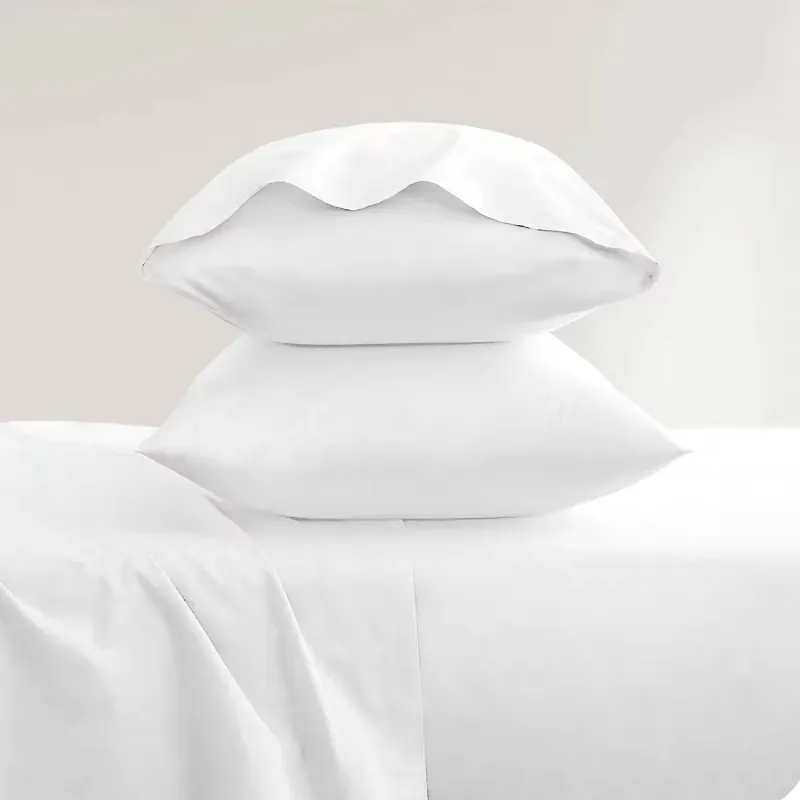Do You Need an Insert for Your Duvet Cover to Use?
Does a Duvet Need an Insert?
When it comes to bedding, many people find themselves puzzled by the terminology and various components involved in creating a cozy sleeping environment. One common question that arises is, Does a duvet need an insert? To answer this, it’s essential first to understand what a duvet is and how it differs from other bedding items.
A duvet is a type of blanket that is typically filled with down feathers, synthetic fibers, or other materials designed to provide warmth. Unlike a regular blanket, a duvet is often used with a duvet cover, which adds a layer of protection and allows for easy cleaning. While the duvet itself serves as a standalone bedding item, many people confuse it with other bedding essentials such as comforters, which can lead to the question about the necessity of an insert.
Does a Duvet Need an Insert?
For individuals who prefer a more customizable bedding experience, buying a duvet cover and a separate insert might be preferable. In this scenario, the duvet cover serves as a protective layer over the insert, which could be any warmth-providing material. This setup allows you to select an insert based on your thermal needs, be it a heavier down insert for cold winters or a lightweight cotton insert for warmer months.
does a duvet need an insert

Using a duvet in this manner signifies that it’s not strictly necessary to have an insert, but it certainly can be advantageous. In fact, this is a common choice among those who want versatility in their bedding. A duvet can be a great choice for seasonal adjustments; just swapping out the insert can completely change the comfort level of your bedding without needing to invest in a completely new duvet.
In climates where seasons change drastically, having a few different inserts for a duvet can be a wise investment. For example, a fluffy down insert can provide superior warmth and comfort during winter. In contrast, a thinner synthetic insert might suffice for the milder spring nights. The ability to adapt your bedding to suit your needs can significantly enhance your sleeping experience.
Additionally, maintenance is another aspect to consider. Duvets typically require less frequent washing compared to comforters since the duvet cover can be removed and washed regularly. Keeping a duvet rather than multiple comforters can save time and effort in the laundry department. More so, when selecting a duvet, you’ll want to consider materials; natural filling like down might require special care, while synthetic filling can often be machine washed more easily.
It is important to highlight, however, that not all duvet covers are created equal, and the quality of materials can vary significantly. Ensuring a snug fit between the duvet cover and insert is paramount. A well-fitting cover will keep your insert securely enclosed, preventing it from shifting and creating an uncomfortable sleeping environment.
In summary, a duvet, by design, does not require an insert since it functions as one. However, opting for a separate duvet cover and insert can provide significant benefits in terms of versatility, maintenance, and seasonal adaptability. Whatever your choice, understanding the choices you have will help you create the most comfortable and peaceful sleep environment possible. Bedding is an integral part of a good night's sleep, and investing the time to find the right duvet setup can lead to long-term comfort and satisfaction. Whether you choose a duvet alone or with an insert, ensuring it meets your personal needs will help you sleep more soundly and wake up refreshed.
-
Elevating Comfort and Quality with the Right Bed LinenNewsJul.07, 2025
-
Bedding Essentials: From Percale Sheets to White Quilts, Finding Your Perfect Sleep HavenNewsJul.07, 2025
-
Choosing the Right Bedding for a Comfortable and Stylish BedroomNewsJul.07, 2025
-
Understanding the Diverse World of Towel TypesNewsMay.29, 2025
-
The Ultimate Comfort: Discover the Benefits of Polycotton SheetsNewsMay.29, 2025
-
Experience Luxury with 1800 Brushed Microfiber SheetsNewsMay.29, 2025
-
Elevate Your Sleep with Luxurious Hotel Sheets for SaleNewsMay.29, 2025






